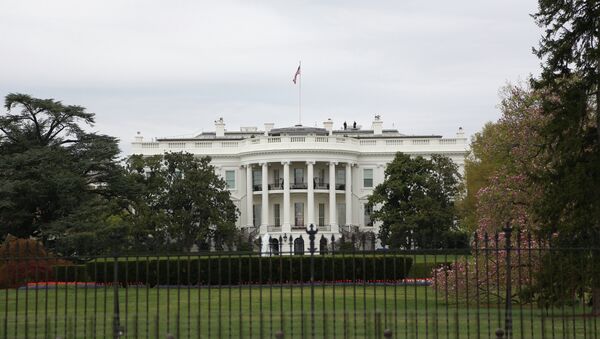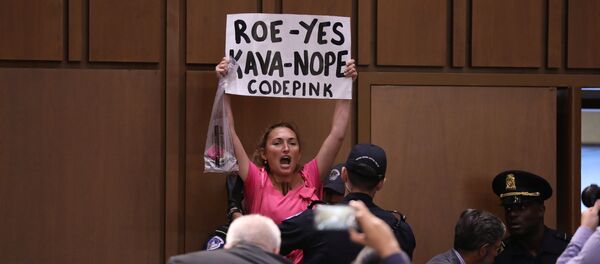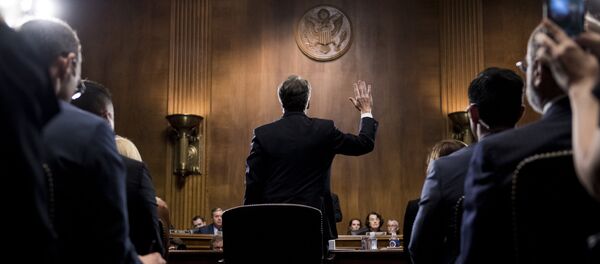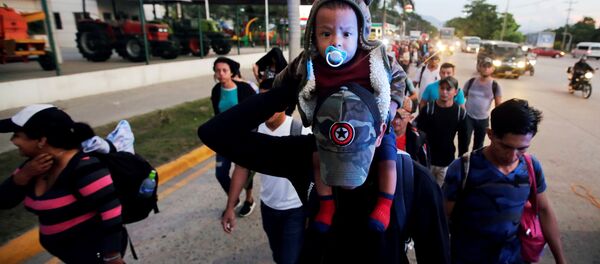Ben Becker, editor of Liberation News, joined Radio Sputnik's By Any Means Necessary Tuesday to discuss how the new regulations, if implemented, could limit free speech and expression in the US.
In August, the National Park Service (NPS), which manages all national parks, many national monuments and other conservation and historical properties in the US, announced that it was considering charging fees for protests on federal land like the National Mall to "allow the NPS to recover some of the costs" of protests. Currently, the park service does not charge fees for demonstrations on federal land.
The service, which argues that its proposal is an attempt at "protecting and preserving the cultural and historical integrity of these areas," also suggests restricting the area of the White House sidewalk available for protests by 80 percent.
According to many activists, these proposed regulations directly threaten free speech.
"I think it would essentially crush free speech assembly in the major assembly areas of federal territories in Washington, DC, which is the nation's capital and a major site of protest year after year, going back decades and centuries," Becker told hosts Eugene Puryear and Sean Blackmon.
"It they [the NPS] are able to get this through, it would also send a message to park services, city governments and state governments nationwide that you can do something like this, if the White House can get away with this. It obviously has national implications," Becker added.
If the proposed regulations pass, protests in Washington, DC, could become very similar to those in New York City, which are strictly regulated, Becker noted.
"In New York, there is a weird mix of different regulations. You need a sound permit for any sort of sound you have. It is very hard for people to enter your protests. They have one entry point. Every intersection is walled off, so you don't even get the feeling that you're in a mass protest. If you use a bullhorn while marching, they [the police] can arrest you or confiscate the bullhorn. In parks, it is very difficult to get permits there. It's highly restrictive, and minor violations can lead to permits being revoked," Becker explained.
"The thing about the National [Park] Service-controlled areas, if you apply for a permit across from the White House, [and] within 24 hours, your permit is not rejected, it is deemed approved. So that makes it much easier to plan protests, to give people the comfort [of knowing] that your protest is going forward," Becker added.
Under the proposal, the NPS is also considering charging demonstrators for "sanitation and trash removal" and "harm to turf."
"But of course, the park service does not plan to charge the 45 million non-demonstrators who visit the National Mall every year for the fencing and sanitation their presence requires or for the harm to the turf that they cause," the American Civil Liberties Union (ACLU) argued in a blog post published last week.
In addition, current regulations state that the NPS allows spontaneous demonstrations to take place if necessary resources and personnel "can reasonably be made available" by the NPS. However, the proposed regulations state that spontaneous demonstrations will be accommodated "provided that the NPS has the resources and personnel available to manage the activity."
"Historically, protest and First Amendment activities have had separate categories [from events like concerts] because people understood that [they're] different from concerts. [Protests] have additional safeguards and protections that a concert does not. So, by grouping [protests] with all these other things, they [the NPS] are minimizing the importance of protests and making it very hard, so you could be hit with many fees on the backend, which will bankrupt small grassroots organizations," Becker explained.
There is also a new "hair trigger" to shut down protests under the proposed regulations, Becker added.
"Right now, they're saying they can shut down a protest if it threatens public safety. But the new regulations state that if any of the terms of the permit are violated, [they can shut down the protest]. So for instance, if someone comes and climbs a tree, that's a violation of your permit; they can revoke your permit. You could send in three people to violate the terms of a permit. They could pose as protesters or cause commotion. There are also strict regulations on carrying signs," Becker noted.
Why not show up without a permit?
Well, according to Becker, if you gather more than 25 people in Washington, DC, without a permit, the police area going to disperse you.
"So, unless you are planning on organizing protests that could be subject to immediate dispersal, the question about acquiring permits is important for activists," Becker told Sputnik.
However, people have been responding passionately to the proposed regulations. The NPS received 60,466 public comments regarding the proposal before the public comment period closed Monday night, according to regulations.gov.
"The response of people around the country has been amazing. Over 60,000 comments came into regulations.gov to oppose this proposal. And the NPS does have to respond to the comments," Becker said.







